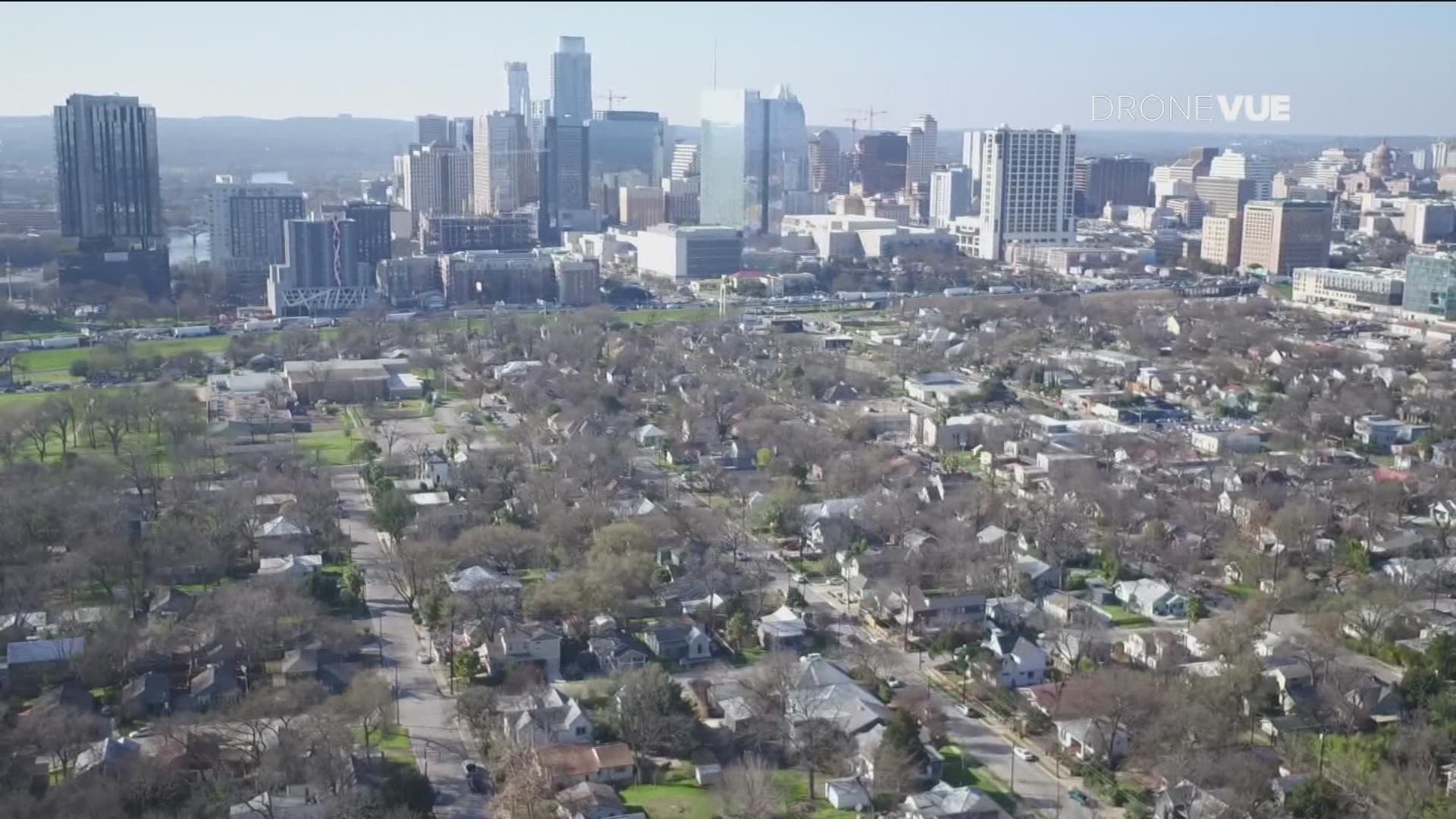AUSTIN, Texas — A recent study out of the University of North Carolina ranks Austin as the second fastest-growing city in the nation.
But city and housing advocates are trying to keep up with that growth while building more affordable housing to keep people here.
For Awais Azhar with HousingWorks Austin, he said the way the city grows is key.
"It's really important to make sure that we're managing that growth in a way where we continue to serve our residents who live here and who are moving here so that they all have affordable housing opportunities," said Azhar.
His organization released new data that took a look at the cost of living, homelessness and the state of transit in Austin with the city's growth.
Joao Paulo Connolly with the Austin Justice Coalition said the city's growing pains aren't new.
"Black folks, Brown folks have been moved around to different parts of the city and have been forcibly relocated many times," said Connolly. "Your schoolteacher, your nanny, the lifeguard at the pool, the staff that works at the park that you benefit from," he said when talking about who is being affected by the hike in prices.
To qualify for affordable housing units in Austin, residents typically have to earn less than 80% of the city's median income. For a four-person household, that median income sits just under $100,000.
"Other projects before, the affordability component has just been totally left out," said Stacy Rhone, the CEO of BiGAUSTIN.
BiGAUSTIN is a nonprofit focused on community development.
Through a $65 million investment from her team and Bank of America's Community Development arm, it will build a multi-resource development. The plan for Rhone and her team is to build more than 400 housing units in northeast Austin with more than 50% of those being affordable housing.
In addition, a resource center is also planned for the development to allow for tenants to get help with any needs they may have.
"To help these individuals start businesses, become stronger businesses, there's a lot more to it than just housing," said Rhone.
Azhar said projects like these are something Austinites can vote for, like the $350 million affordable housing bond on the November ballot.
"What we've been able to achieve from this in the past is we've created 6,000 affordable units from our bonds, both ownership and rental," said Azhar.
As Austin continues to grow, advocates hope equity remains in the forefront.
For more information and resources from HousingWorks Austin, click here.
PEOPLE ARE ALSO READING:

